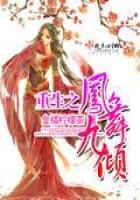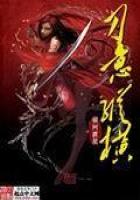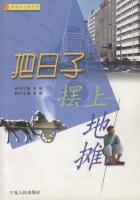While he never states, without qualifications and objections, the charges which the earliest and best historians have brought against his favourite tyrants, Pisistratus, Hippias, and Gelon, he transcribes, without any hesitation, the grossest abuse of the least authoritative writers against every democracy and every demagogue.Such an accusation should not be made without being supported; and I will therefore select one out of many passages which will fully substantiate the charge, and convict Mr Mitford of wilful misrepresentation, or of negligence scarcely less culpable.Mr Mitford is speaking of one of the greatest men that ever lived, Demosthenes, and comparing him with his rival, Aeschines.Let him speak for himself.
"In earliest youth Demosthenes earned an opprobrious nickname by the effeminacy of his dress and manner." Does Mr Mitford know that Demosthenes denied this charge, and explained the nickname in a perfectly different manner? (See the speech of Aeschines against Timarchus.) And, if he knew it, should he not have stated it? He proceeds thus: "On emerging from minority, by the Athenian law, at five-and-twenty, he earned another opprobrious nickname by a prosecution of his guardians, which was considered as a dishonourable attempt to extort money from them." In the first place Demosthenes was not five-and-twenty years of age.Mr Mitford might have learned, from so common a book as the Archaeologia of Archbishop Potter, that at twenty Athenian citizens were freed from the control of their guardians, and began to manage their own property.The very speech of Demosthenes against his guardians proves most satisfactorily that he was under twenty.In his speech against Midias, he says that when he undertook that prosecution he was quite a boy.
(Meirakullion on komide.) His youth might, therefore, excuse the step, even if it had been considered, as Mr Mitford says, a dishonourable attempt to extort money.But who considered it as such? Not the judges who condemned the guardians.The Athenian courts of justice were not the purest in the world; but their decisions were at least as likely to be just as the abuse of a deadly enemy.Mr Mitford refers for confirmation of his statement to Aeschines and Plutarch.Aeschines by no means bears him out; and Plutarch directly contradicts him."Not long after," says Mr Mitford, "he took blows publicly in the theater"(I preserve the orthography, if it can be so called, of this historian) "from a petulant youth of rank, named Meidias." Here are two disgraceful mistakes.In the first place, it was long after; eight years at the very least, probably much more.In the next place the petulant youth, of whom Mr Mitford speaks, was fifty years old.(Whoever will read the speech of Demosthenes against Midias will find the statements in the text confirmed, and will have, moreover, the pleasure of becoming acquainted with one of the finest compositions in the world.) Really Mr Mitford has less reason to censure the carelessness of his predecessors than to reform his own.After this monstrous inaccuracy, with regard to facts, we may be able to judge what degree of credit ought to be given to the vague abuse of such a writer."The cowardice of Demosthenes in the field afterwards became notorious." Demosthenes was a civil character; war was not his business.In his time the division between military and political offices was beginning to be strongly marked; yet the recollection of the days when every citizen was a soldier was still recent.In such states of society a certain degree of disrepute always attaches to sedentary men; but that any leader of the Athenian democracy could have been, as Mr Mitford says of Demosthenes, a few lines before, remarkable for "an extraordinary deficiency of personal courage," is absolutely impossible.What mercenary warrior of the time exposed his life to greater or more constant perils? Was there a single soldier at Chaeronea who had more cause to tremble for his safety than the orator, who, in case of defeat, could scarcely hope for mercy from the people whom he had misled or the prince whom he had opposed? Were not the ordinary fluctuations of popular feeling enough to deter any coward from engaging in political conflicts? Isocrates, whom Mr Mitford extols, because he constantly employed all the flowers of his school-boy rhetoric to decorate oligarchy and tyranny, avoided the judicial and political meetings of Athens from mere timidity, and seems to have hated democracy only because he durst not look a popular assembly in the face.Demosthenes was a man of a feeble constitution: his nerves were weak, but his spirit was high; and the energy and enthusiasm of his feelings supported him through life and in death.
So much for Demosthenes.Now for the orator of aristocracy.Ido not wish to abuse Aeschines.He may have been an honest man.
He was certainly a great man; and I feel a reverence, of which Mr Mitford seems to have no notion, for great men of every party.















